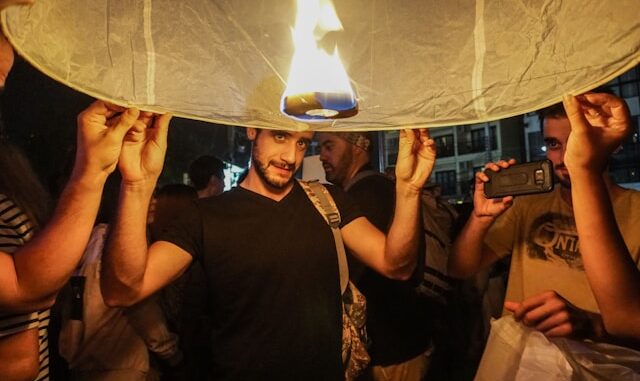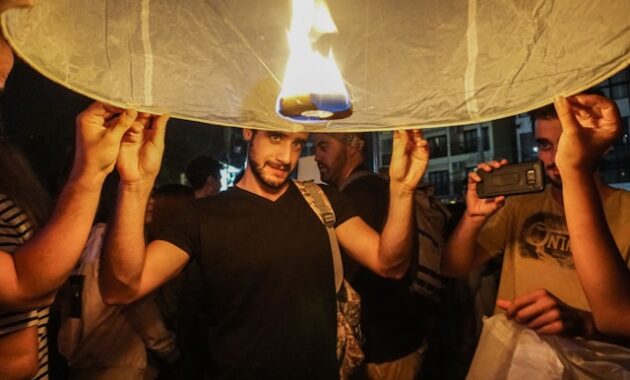
Koh Yao Noi, a hidden gem in Thailand’s Phang Nga Bay, is not only known for its stunning landscapes and tranquil beaches but also for its rich cultural heritage and traditional Thai festivals. The island is home to a harmonious blend of Thai and Muslim communities, and its local customs and celebrations reflect a deep-rooted respect for both Buddhist and Islamic traditions. Visitors to Koh Yao Noi can immerse themselves in authentic Thai culture, experiencing traditional festivals, ceremonies, and local customs that have been preserved for generations.
Songkran – Thai New Year Water Festival
One of the most well-known and widely celebrated festivals in Thailand, Songkran marks the Thai New Year and is observed annually from April 13th to April 15th. On Koh Yao Noi, Songkran is a unique blend of tradition and festivity, where locals and visitors alike participate in water fights, merit-making, and temple visits.
Key Highlights of Songkran on Koh Yao Noi:
- Water-Splashing Festivities: While Songkran is famous for its nationwide water fights, the version on Koh Yao Noi remains more traditional and family-oriented.
- Temple Ceremonies: Locals visit temples to make merit, pour scented water on Buddha statues, and offer food to monks.
- Rod Nam Dum Hua: A respectful water-pouring ritual performed by the younger generation to pay respects to elders and receive blessings.
- Local Parades and Cultural Performances: Expect to see vibrant processions, traditional dances, and musical performances that showcase Thai heritage.
Loy Krathong – Festival of Lights

Loy Krathong, often referred to as the Festival of Lights, is celebrated on the full moon night of the 12th lunar month (usually in November). This mesmerizing festival is a tribute to the water goddess, Phra Mae Khongkha, and serves as a time for letting go of negativity and making wishes for the future.
How Koh Yao Noi Celebrates Loy Krathong:
- Floating Krathongs: People gather by the water, releasing beautifully decorated krathongs (small floating baskets) made of banana leaves, flowers, candles, and incense sticks.
- Lantern Releases: Some locals also release Khom Loy (sky lanterns) into the night sky, symbolizing the release of misfortunes and welcoming good luck.
- Cultural Shows and Traditional Thai Dance: The evening is often marked by traditional music, dance performances, and storytelling.
Ramadan and Hari Raya – Celebrations of the Muslim Community
Given that Koh Yao Noi has a significant Muslim population, Islamic customs and traditions play an essential role in the island’s cultural fabric. Ramadan, the holy month of fasting, and Hari Raya (Eid al-Fitr) are significant occasions celebrated with deep reverence.
Key Customs During Ramadan and Hari Raya on Koh Yao Noi:
- Fasting from dawn to sunset – Locals observe fasting, reflecting on faith, charity, and community values.
- Evening Feasts (Iftar): Families and communities come together for sumptuous meals to break their fast.
- Hari Raya Celebrations: After Ramadan ends, Hari Raya is marked by festive prayers, feasts, and the giving of gifts.
- Traditional Attire and Mosque Gatherings: Muslim families dress in traditional clothing and gather at mosques for special prayers and sermons.
Buddhist Ceremonies and Wai Kru Rituals
Although Koh Yao Noi is predominantly Muslim, it still embraces Buddhist traditions and ceremonies. Many locals practice Buddhism, and visitors can experience unique Buddhist customs, temple rituals, and Wai Kru (Teacher Appreciation Ceremony).
Important Buddhist Traditions on Koh Yao Noi:
- Makha Bucha and Visakha Bucha Days: Observances where locals make offerings at temples, meditate, and listen to Dhamma teachings.
- Wai Kru Ceremony: This ceremony is an essential part of Thai culture where students honor their teachers through floral offerings and traditional performances.
- Ordination Ceremonies: Many young men join monastic life for a period, and their ordination ceremonies involve grand celebrations, processions, and blessings.
Local Customs and Cultural Etiquette
To truly appreciate Koh Yao Noi’s traditions, it is essential to understand the local customs and etiquette. Visitors are encouraged to embrace respectful behavior, dress modestly, and participate in local practices.
Cultural Etiquette on Koh Yao Noi:
- Respect for Elders: The Thai greeting, wai (a slight bow with palms pressed together), is a common gesture of respect.
- Modest Dress Code: Since the island has a large Muslim population, dressing modestly, especially in villages and religious sites, is highly appreciated.
- Removing Shoes: Always remove your shoes before entering homes, temples, and some local shops.
- Respect for Religion: Whether Buddhist or Muslim, respecting places of worship and religious practices is crucial.
Conclusion
Koh Yao Noi offers visitors a unique cultural experience, where ancient traditions, religious practices, and local customs come together to create an atmosphere of harmony and authenticity. From the joyous water celebrations of Songkran to the serene beauty of Loy Krathong, and the deep spiritual significance of Ramadan and Buddhist rituals, the island’s cultural tapestry is truly mesmerizing. Travelers seeking a deeper connection with Thailand’s traditional way of life will find Koh Yao Noi to be an unforgettable destination rich in heritage, community spirit, and timeless customs.